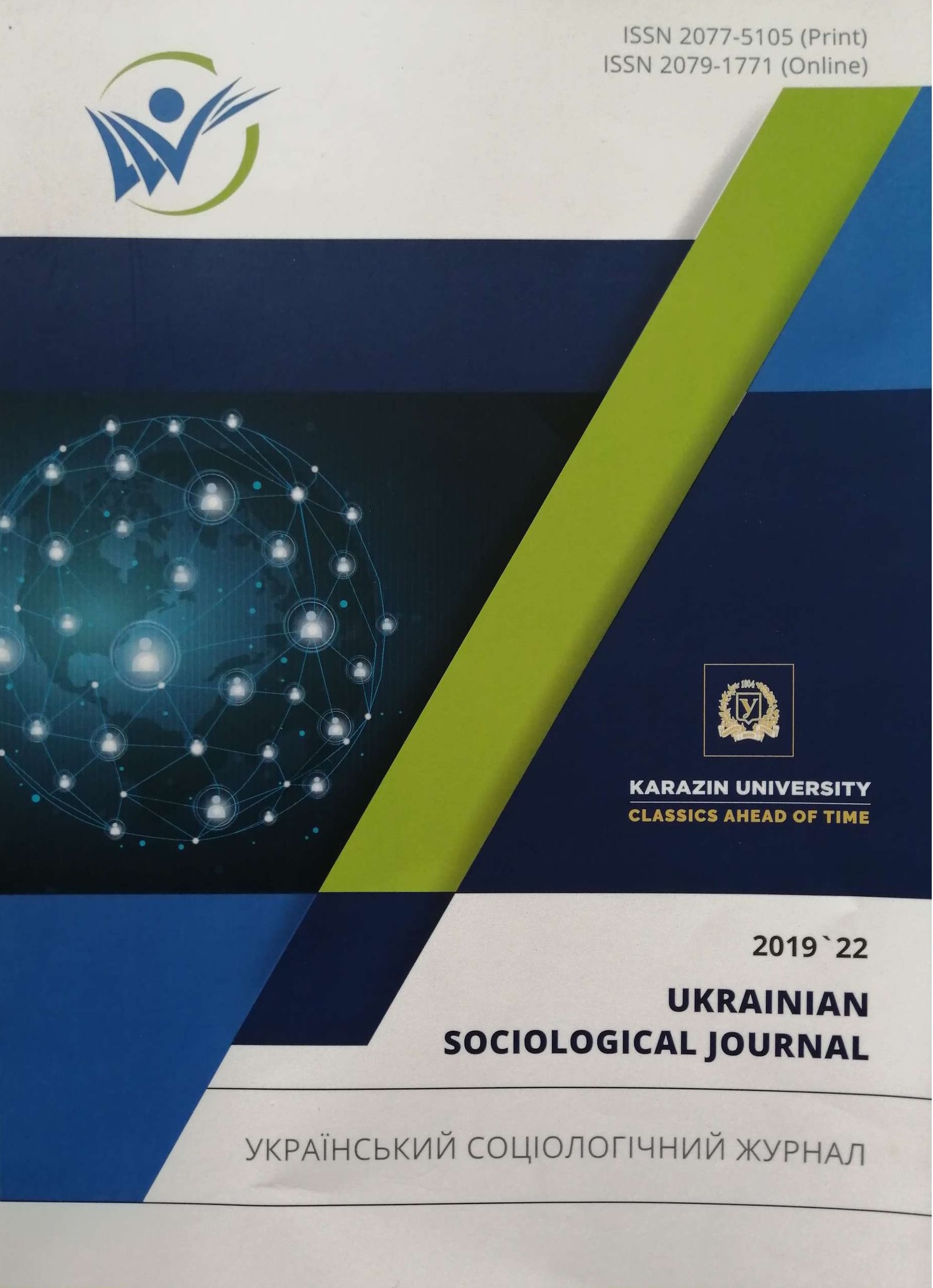Соціологія в Україні: інституціональний статус та актуальні дослідження
Анотація
У публікації здійснено порівняльний огляд історії, сучасного стану та напрямків наукової діяльності соціологічної асоціації України (САУ), її творчих зв’язків з європейською та світовою соціологічною спільнотою, зокрема спільних досліджень із науковцями Польщі. Підкреслено, що переважна частина українських соціологів-членів САУ працюють в університетах, Інституті соціології Національної академії наук України та центрах дослідження громадської думки. Їхніми зусиллями здійснюються численні соціологічні (теоретичні та емпіричні) дослідження з різноманітних питань життєдіяльності сучасного українського суспільства. Зазначено, що окрім вивчення традиційних для вітчизняної соціології питань соціальної трансформації у її політичних, економічних, правових, соціальних та культурних аспектах, в останні роки українські соціологи звертаються до аналізу таких проблем, як зовнішня та внутрішня міграція (проблема внутрішньо переміщених осіб); військовий конфлікт на Сході України та пов’язаний з ним волонтерський рух; соціальна нерівність, у тому числі в її нових проявах, зумовлених дигіталізацією суспільного життя тощо. Підкреслено, що сьогодні найактуальнішим питанням соціологічної рефлексії є ті зміни, що відбуваються в Україні після останніх президентських виборів. Акцентовано увагу на тому, що перемога політичного новачка на цих виборах зумовлена величезними соціальним розчаруваннями українців, оскільки їхні очікування, спровоковані Революцією Гідності, не були здійснені. Перше і найважливіше розчарування, як свідчать соціологічні дослідження, пов’язане з тим, що в країні так і не запанував мир. Друге – життєві стандарти українських громадян не покращились. Третє – боротьба з корупцією не принесла суттєвих результатів. Четверте – соціальна нерівність поглибилась: багаті стали ще більш багатими, а бідні – біднішими. П’яте розчарування – неефективність задекларованих реформ: судової, медичної, освітньої, митної, виборчої та ін. Підкреслено, що ефективність діяльності нової влади залежить, у тому числі, від врахування нею таких особливостей масової свідомості українського населення, як критичний рівень недовіри до всіх інститутів влади; ціннісна та ідеологічна амбівалентність та невизначеність. Сформульовано висновки щодо малої ймовірності повернення України на орбіту російського політичного та економічного впливу, а також перемоги радикальної націоналістичної ідеології на теренах нашої країни.
Завантаження
Посилання
Sokurianska L. Educational reform in Ukraine: the risks of irresponsibility actualization Stugia nad wiedza. Wiedza a instytucjonalizacja nieodpowiedzialności / Red. Mariusz Zemło, Arkadiusz Jabłoński, Jan Szymczyk. Lublin: Ratol / uniwers Jana Pawla II, 2014. Tom. VI. С. 379-388;
Sokurianska L., Schudlo S. Tożsamość obywatelska oraz plany emigracyjne studenckiej młodzieży wschodniego I zachodniego przygranicza Ukrainy. Pogranicza i centra współczesnej Europy. Różnorodność praktyk i teorii / red. nauk. Dorota Szaban, Justyna nyćkowiak, Tomasz Kołodziej. Zielona Góra: Lubuskie Towarzystwo naukowe, 2015 (Transgraniczność w perspektywie socjologicznej. Seria Monografi czna; Tom IX, część 2). pp. 293–309
Sokurianska L., Agamiryan L. Practices of leisure of teenage youth of Central and Eastern europe’s borderlands as a space of their value preferences realization. Youth in Central and Eastern Europe. Sociological Studies, 2016. №2(6). pp. 51–65. URL: http://www.youthjournal.eu/Youth%20Yournal%206–2016–3.pdf;
Kalashnikova А. А. Specialist Media as the Art Field and the Art Market Evolution Refl ector. Media i społeczeństwo Vol. 5 / 2015. Bielsko-Biała: Akademia Techniczno-Humanistyczna. Pp. 86-94. (Index Copernicus) URL : http://www.mediaispoleczenstwo.ath.bielsko.pl/art/05/05_kalashnikova.pdf
Khyzhniak O. Strategic planning of university (school) development as an element ofeducational policy (case study experience). Youth in Centraland Eastern Europe. Sociological Studies. 1 (5). 2016. P. 30-50. URL: http://www.youthjournal. eu/Youth%20Yournal%205(1)-2016.pdf (Index Copernicus).
“Ukrainian Sociology in the 21st Century: Theory, Methods, Research Results”/edited by Vil Bakirov, Evhen Golovakha. Kharkiv: V. N. Karazin Kharkiv National University, 2018. 560 p.




